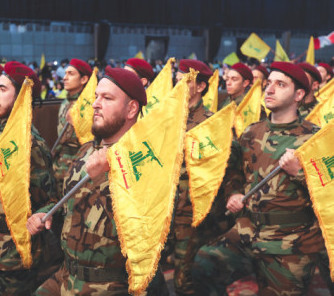The presidential election is one the horizon, and the President wants to impart an image of “victor” in the war on international terror to the Republican Administration. “Removing Saddam Hussein from power was the right decision”, the host of the White House claims. He also believes that “because we acted, the world is better”. According to Bush, “the surge (of US force strength in Iraq) has opened the door to a major strategic victory in the broader war on terror.”
In his speech the American President tried to convince the public that the fight with the Islamic extremists in Iraq helped to prevent new acts of terror in the USA itself, and saved many innocent lives in the streets of Americans cities. “Defeating this enemy in Iraq will make it less likely that we'll face the enemy here at home”, Bush emphasized. The President also said that Iraq has become the place where Arabs-Sunnis of co called "Anbar Awakening" joined with Americans to drive al-Qaeda out. Bush especially mentioned this “first large-scale Arab uprising against Osama bin Laden”.
Besides in his speech Bush denied “exaggerated estimates of the costs” of the Iraqi campaign. “Those costs are necessary when we consider the cost of a strategic victory for our enemies in Iraq” he claimed. During five years of the war in Iraq about 4 thousand American militaries were killed while the number of killed Iraqis is unknown until now but we may speak about dozens and even hundreds of thousands. .
At the same time, Bush even did not mentioned the failed search of weapons of mass destruction in Iraq that was declared a main cause of the US intervention in this country five years ago.
The President made his speech at the background of mass anti-war protest rallies in the USA and severe critics of his policy by the Democrats. The police arrested dozens of protestors demanding from the Administration to give an account of ineffective spending of taxpayers’ money on the Iraqi War. According to the US Congress Budget Office, as of today, the Iraqi War costs more than 600 billion Dollars. And according to estimates of Nobel Prize winner economist Joseph Stiglits, the costs of the Iraqi War will total 3 trillion Dollars taking into account all expenditures on veteran medical treatment and future economic losses.
Democratic presidential candidate Senator Barack Obama claimed that the decision on intervention was taken due to ideological reasons ignoring good judgment and facts. Senator Obama voted against intervention in Iraq in 2002. Speaking in the North Carolina, the dark-skinned presidential candidate described the situation of 2002 in the US political establishment as follows: “There was the President for whom the ideology prevailed over the pragmatism, and there were too many politicians in Washington who spent too little time reading intelligence reports and too much time reading public opinion surveys”.
Both Obama and his competitor in the Democratic Party Hilary Clinton promise to stop the war in Iraq. Clinton claims that she is going to start withdrawing the American troops from Iraq during 60 days after her election, and plans to hand over the entire responsibility for the situation in the country to the Iraqis. “We cannot win in their civil war. It has no military solution”, Clinton says. Only Republican candidate McCain still expressly supports the Bush’s policy in Iraq.
Meanwhile according to independent observers, the actual situation in Iraq looks not as rosy as in the speech of the US President. Just recently on the day of the US Vice-President Dick Cheney’s visit to Baghdad, who spoke about the success and progress in the country, 60 Iraqis were killed by explosion in Kerbela. The number of suicide bombers increases; in spite of tactical success of the coalition troops the anti-American underground continues to set ambushes and conduct mine war against US militaries who suffer casualties; tension between the Sunnis and Shiahs aggravates resulting in armed clashes, murders and kidnapping; Iraqis emigrate from their Motherland.
According to experts, an important observation of the five-year war for the future is that the Iraqi campaign demonstrated limited military capabilities of the USA that can hardly conduct only two local wars at a time. Iraq and Afghanistan showed that the United States already is not that superpower which was perceived by the world before the Iraqi intervention of 2003.
Besides, records of Abu-Graibe prison, crimes of US militaries in Haditah, Fallujah and other provinces, CIA secret prisons, etc. seriously exploded the international reputation of the USA and practically invalidated its claims for being a moral standard and arbitrator for the rest of the world.
Therefore, in spite of certain military and political achievements of the USA in Iraq, which are in general associated with the activities of US Force Commander General David H. Petraeus and US Ambassador to Baghdad Ryan Crocker, the situation there looks like the Pyrrhic victory. Washington still fails to find a formula to reach a decisive turning-point and feverishly looks for a way out of the Iraqi dead-lock with a minimum damage for itself.
All successes of Patrtaeus and Crocker hardly justify those huge human, material and political losses that were experienced first of all by the Iraqi nation, USA itself and world security in general. Today chances of America for “final” victory in “the war on terror” seem much smaller than five years ago.









